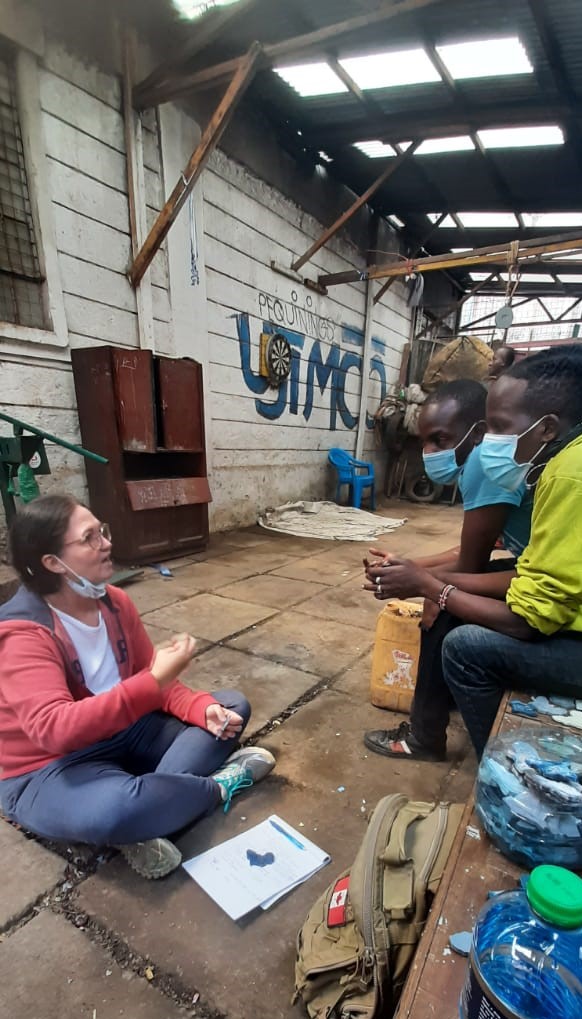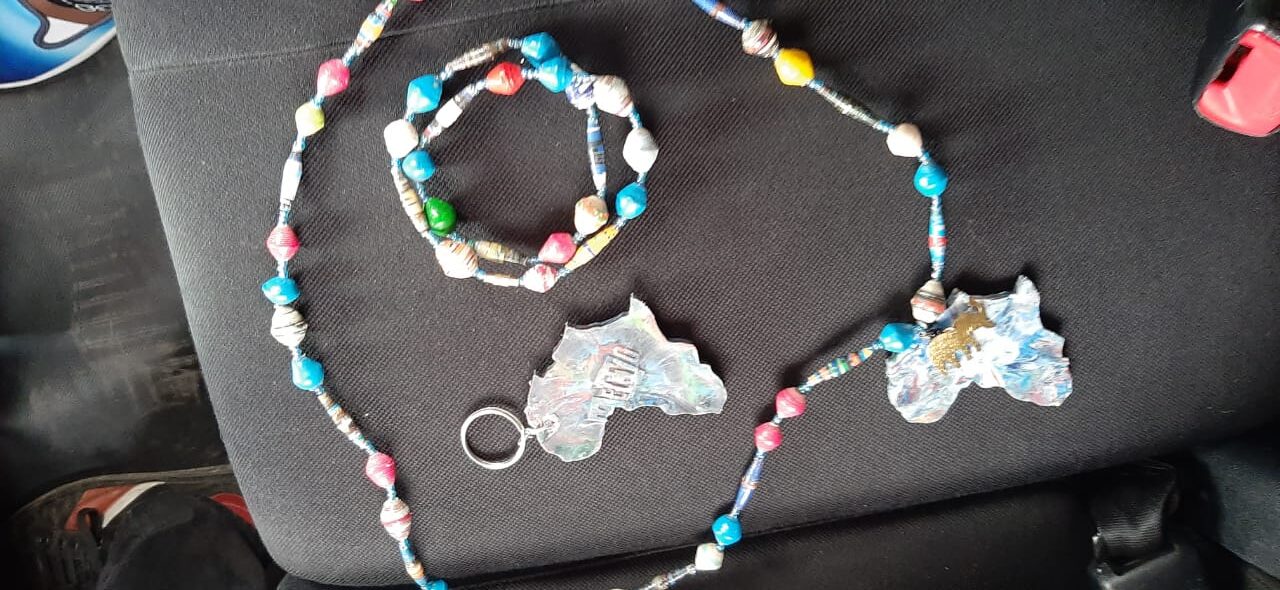Following the establishment of the Mathare Plastic Recycling programme in September 2020, UN-Habitat in partnership with the International Organization of Migration (IOM) and the International School of Kenya (ISK) organized a Design Thinking workshop on 25th May, 2021 at the Nairobi One Stop Youth Centre that led to the training of 7 Mathare youths. The workshop entailed a deep brainstorming session that engaged the Mathare youth on how to produce creative and innovative products from the recycled plastics, how to identify the target market and how to align the products with the different target markets.

Through the different ideas generated, the trainees identified products such as key chains and, alphabetical and numerical figures ,that can be used for educational and branding purposes among others, would resonate well with the local market, while souvenirs such as maps of Africa and Kenya would resonate with the International Market.
Following up the Design Thinking workshop, a Business Development initiative was brought into place through the engagement of Daniela Romagnoli Ph.D, a professor and Strategic Business Analyst focused on Youth Entrepreneurship. This initiative would lead to the creation of a sustainable business from the Mathare plastic recycling programme and help the Mathare youth reach a wide range of audience. Thus, on 17th June 2021, Ms. Daniela visited the Mathare One Stop Youth centre and had a brainstorming session with Mathare Youth on what products are needed at local market, the quality of the recycled products produced, and how to attract the international market.
A field trip to the famous Kariokor market was taken, after the brainstorming session, where Ms. Daniela and Mathare youth did an on-ground research. The market hosted a variety of products such as beaded Maasai sandals, earrings, bracelets, necklaces and handbags among others. From the market visit, more ideas were generated on marketable products that can be recycled such as hairpins, fridge magnets, necklaces among others. During the market visit, some products from the Centre were creatively redesigned into a set of ornaments.



